The whole commercial is based on the double meaning of the formula "Km Zero" in Italian, to speak to an unusual target, the male 20 - 40 years old. The formula is used to describe a discounted car with low mileage on the clock, untitled, and used for loan/ demonstration purposes. It is usually a great bargain, getting as much as 20% off the dealer's price. But at the same time the formula is used to describe local and organic food, grown figuratively "zero kilometers" from home. Almost up to the end of the commercial, our male target is tricked to believe it is a car the one represented, with the help of two-faced claims (more control, less emission, superior quality). Combining something they know, cars, with something they are often not interested in, good nutrition, the commercial ties together two concepts, hoping for an impact.
Km Zero - Choose Local Food - YouTube
Or:
Alimenti a km zero: ecosostenibili, economici, equilibrati

L’espressione “prodotti alimentari a km zero”, mutuata dall’anglosassone “food miles”, definisce quella categoria di alimenti per la quale si accorcia o elimina la distanza tra agricoltore e consumatore, con riduzione della produzione di anidride carbonica (CO2) e del costo finale. Tra la campagna e la nostra tavola, gli alimenti subiscono, infatti, numerosissimi passaggi di lavorazione (raccolta, lavaggio, pulitura, primo stoccaggio), confezionamento (spesso dispendioso, a seconda della destinazione finale) e infine, accesso alla Gdo (Grande distribuzione organizzata) che opera attraverso numerosi altri intermediari fino allo scaffale del supermercato. Ciò detto non deve stupire se si stima che, prima di giungere al consumatore, un pasto medio percorre 1.900 km!
Alimenti a km zero: ecosostenibili, economici, equilibrati - Alimentazione bambini Alimentazione bambini
There are interesting issues of translation:
Km zero > locally produced
A chilometro zero | DAILYNTERPRETER.COM
But more and more people are showing interest:
Kilometro zero o kilometro vero?
But, then, you could say that the notion should come easiest to Italians:
Cibo a kilometro zero. Food at zero miles.
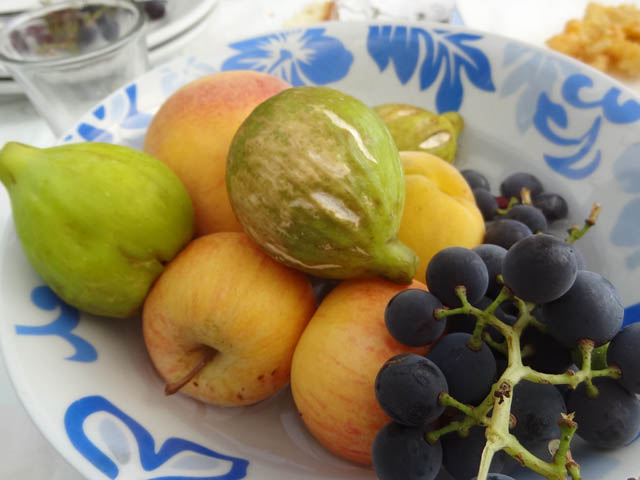 Che vuol dire “cibo chilometri zero”? Questa frase implica che si può vivere molto bene prendendo solo pochi passi nell’orto a raccogliere tutto ciò necessario per mangiare bene. In altre parole, si può sopravvivere e prosperare (e risparmiare soldi), dalla abbondanza del vostro proprio orto! Questa settimana ho vissuto “cibo Km zero”. Quasi tutto che io ho mangiato è venuto direttamente dell’orto: pomodori, melanzane, peperoni, patate, fagioli, basilico, pesche, uva, fichi, mele, vino e anche uova, agnello e pollo!
Che vuol dire “cibo chilometri zero”? Questa frase implica che si può vivere molto bene prendendo solo pochi passi nell’orto a raccogliere tutto ciò necessario per mangiare bene. In altre parole, si può sopravvivere e prosperare (e risparmiare soldi), dalla abbondanza del vostro proprio orto! Questa settimana ho vissuto “cibo Km zero”. Quasi tutto che io ho mangiato è venuto direttamente dell’orto: pomodori, melanzane, peperoni, patate, fagioli, basilico, pesche, uva, fichi, mele, vino e anche uova, agnello e pollo!
What do I mean by “food at zero miles” This expression implies that one can live very well by taking just a few steps into the garden to collect all that is needed to eat well. In other words, you can survive and flourish (and save money) from the bounty of your garden that you grow in your own back yard. This week I have lived “food at zero miles”. Everything I have eaten has come directly from the garden: tomatoes, eggplants, peppers, potatoes, beans, basil, peaches, grapes, figs, wine, and even eggs, lamb and chicken.
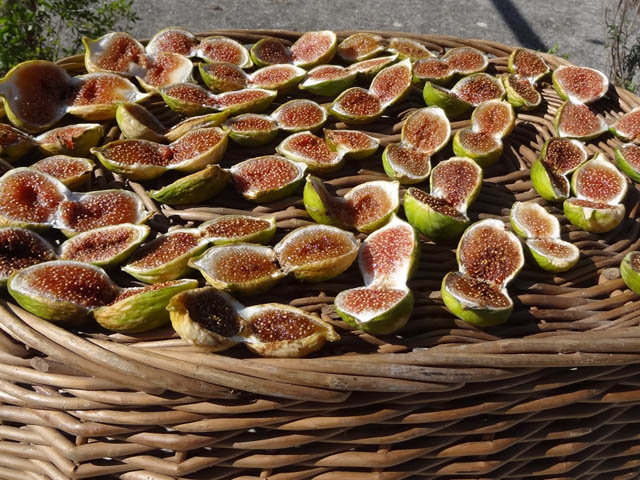
Ci sono tantissimi vantaggi per vivere la vita di un contadino! Costa meno: perchè la merce per arrivare al consumatore non deve essere trasportata, imballata e posta su uno scaffale. E’ sostenibile: scegliendo i prodotti a chilometro zero fai risparmiare anche l’ambiente. I prodotti sono più freschi e sani: si mangia solo i prodotti di stagione, naturalmente freschi senza bisogno di conservanti!
There are so many advantages for living the life of a farmer. It costs less: that is because the food doesn’t have to be transported to you, wrapped up and put on the shelf of a supermarket. It is sostainable: choosing produce from your garden saves the environment. Products are fresher and healthier: you eat only the items that are in season, so naturally everything is super fresh and doesn’t need to be preserved.
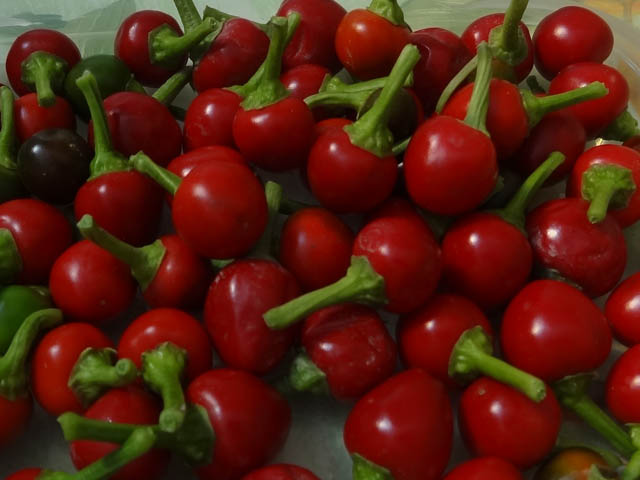
È bello vivere la vita “cibo chilometri zero”. L’unico lato negativo? Boh! Questo sarebbe i cinghiali che vagano per la campagna e entrano in orti durante la notte per rubare il raccolto! Infatti, durante la notte e durante il giorno qui a Episcopia si sente il rumore delle botte che escono dalle piccole macchinette per spaventare i cinghiali di distanza. Mi piacerebbe vedere uno di loro! Ma si dice che i cinghiali hanno più paura di essere umani che noi abbiamo di loro! Quindi devo prolungare la mia permanenza per vedermene uno!
How great to live life “zero food miles.” It is the life of the farmer. The only downside? Boh! This would have to be the wild boars that roam the countryside and come into gardens during the night to steal the harvest! In fact, during the night and during the day here in Episcopia you hear the sound of little explosions that come from small machines to scare away the wild boar. I’d like to see one of them! But it is said that wild boars are more afraid of being human that we have them! So I guess I’m going to have to extend my stay if I want to catch one of them in the act!
Ecco un piccolo passaggio che ho fatto nell’orto oggi:
Here is a little trip that I took into the garden today:
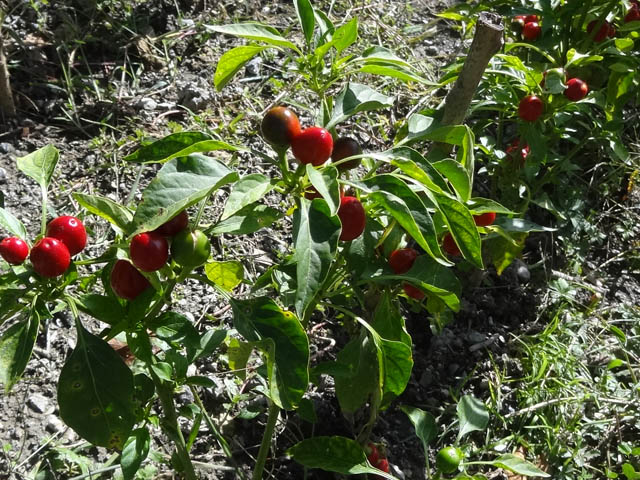 Pomodori
Pomodori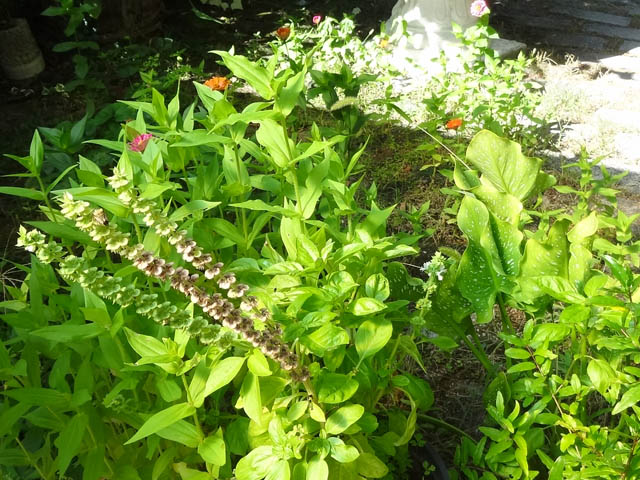 Basilico
Basilico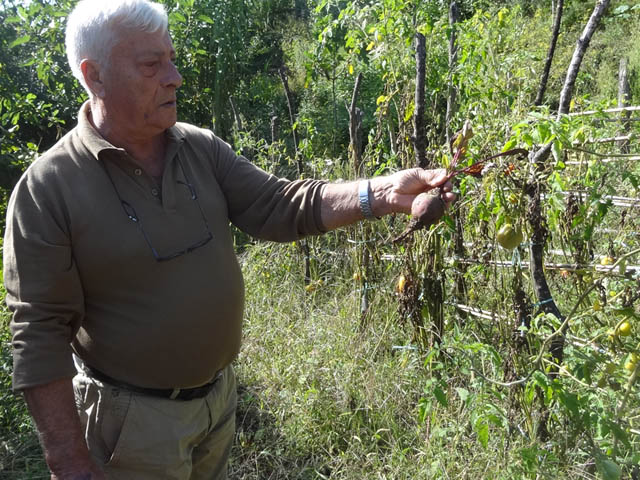 Barbabietola
Barbabietola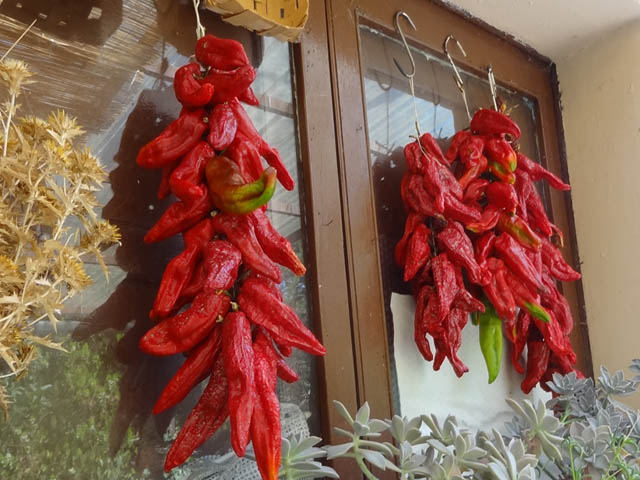 Peperone
Peperone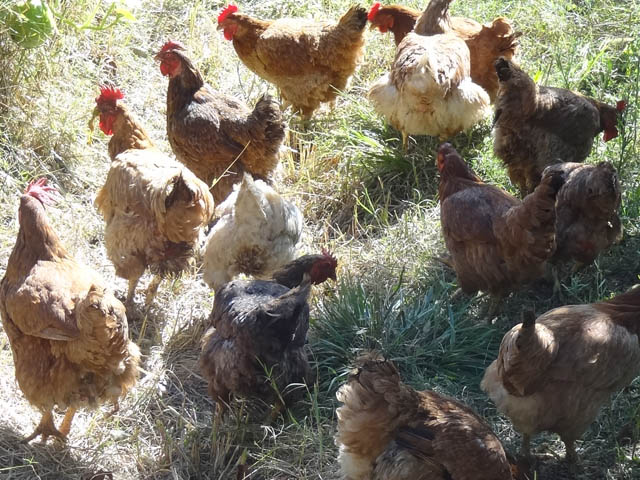 Galline
Galline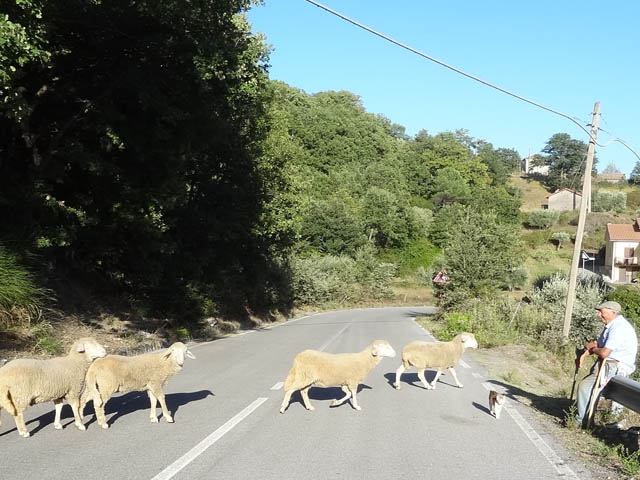 Pecore
Pecore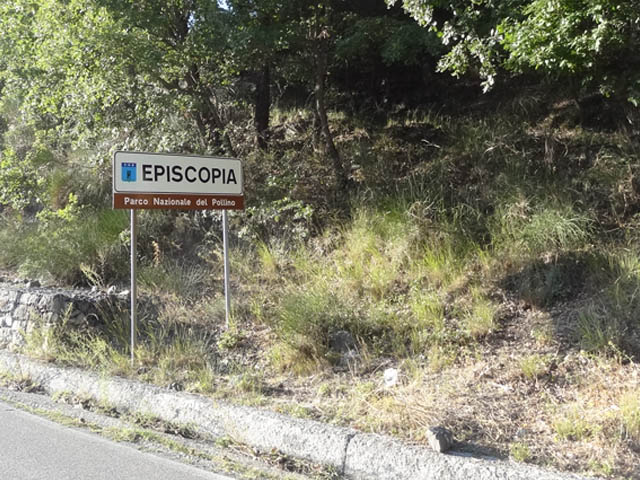
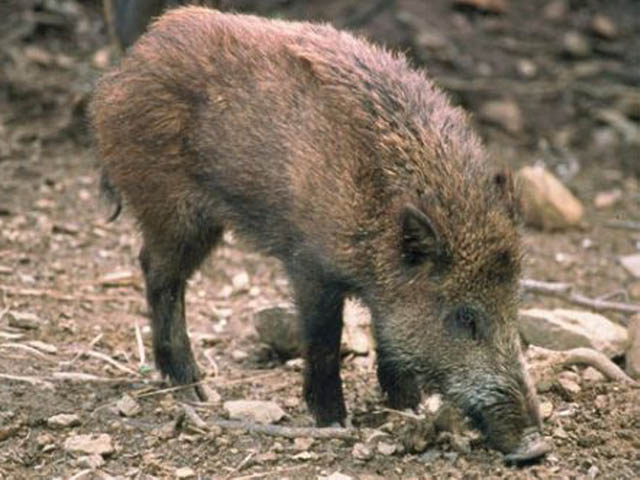 Signor Cinghiale! la grande peste!
Signor Cinghiale! la grande peste!Cibo a kilometro zero. Food at zero miles. - Studentessa mattaStudentessa matta
.
.
.

No comments:
Post a Comment